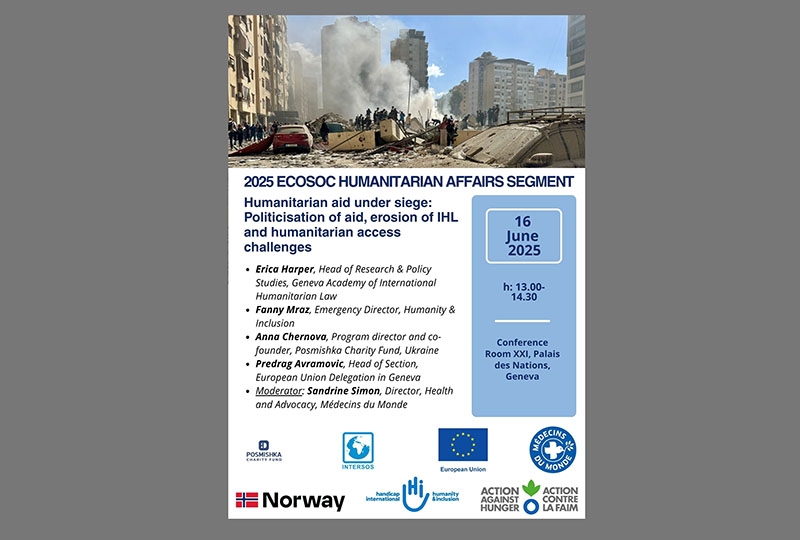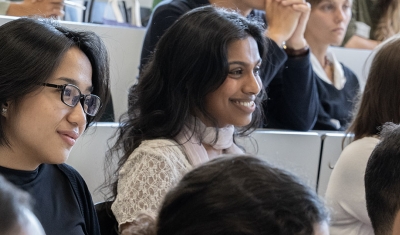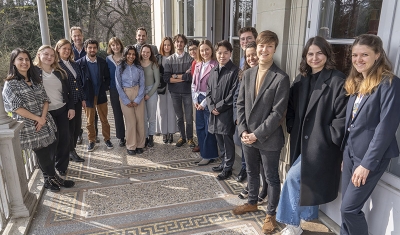23 June 2025
International armed conflicts have nearly doubled in just one year, prompting our Head of Research and Policy Studies, Dr Erica Harper, to focus attention on the urgency of conflict prevention.
Speaking at a United Nations Economic and Social Council panel on June 16 focused on Humanitarian Aid Under Siege, Dr Harper drew on the Geneva Academy’s IHL in Focus Annual Report to highlight alarming conflict trends and their implications for international humanitarian law compliance.
A Perfect Storm for Escalation
Dr Harper highlighted a set of converging threats: economic uncertainty, rising populism, and the ‘contagious brazenness’ of powerful states breaking international laws. This, she explained, creates space for retaliatory behavior that could become ‘a downwards reinforcing conflict cycle’ if not addressed urgently.
The manner in which conflicts are being fought is particularly impacting civilians. With 61 non-state armed groups now involved in ongoing civil conflicts worldwide, violations like child recruitment and sexual violence are becoming commonplace. Such violations are not only devastating for the individuals involved, but also have longer-term impacts. ‘Sexual violence, attacks on cultural heritage, enforced disappearances, targeting humanitarian organizations – these IHL violations stick and make the pathway to peace and recovery harder”.
Other trends need to be seen as conflict enablers, with prime examples being the proliferation of private military companies and accessibility of drone technology. ‘When it’s easier to fight, we see more fighting,’ Dr Harper explained, nothing how these developments lower the threshold for engaging in violence.
A Call for Prevention
The findings were framed as ‘a clarion call for conflict prevention,’. She urged states to fulfill their obligations under the Geneva Conventions, while leveraging tools like Arria formula meetings and, Human Rights Coucnil resolutions to promote IHL compliance.
The conclusion was direct: ‘the tools of international law still exist – but without political will, they mean little. Now is the time to reaffirm IHL norms, rebuild trust, and resist the normalization of war.’
The panel was co-organized by a coalition of humanitarian organizations and institutional partners, including Posmishka Charity Fund, Intersos, Médecins du Monde, Humanity & Inclusion, Action Against Hunger, the European Union, and Norway. Moderated by Sandrine Simon, Director of Health and Advocacy at Médecins du Monde, the panel featured Dr. Erica Harper, Head of Research and Policy Studies at the Geneva Academy; Fanny Mraz, Emergency Director at Humanity & Inclusion; Anna Chernova, Program Director and co-founder of Posmishka Charity Fund, Ukraine; and Predrag Avramovic, Head of Section at the European Union Delegation in Geneva.








